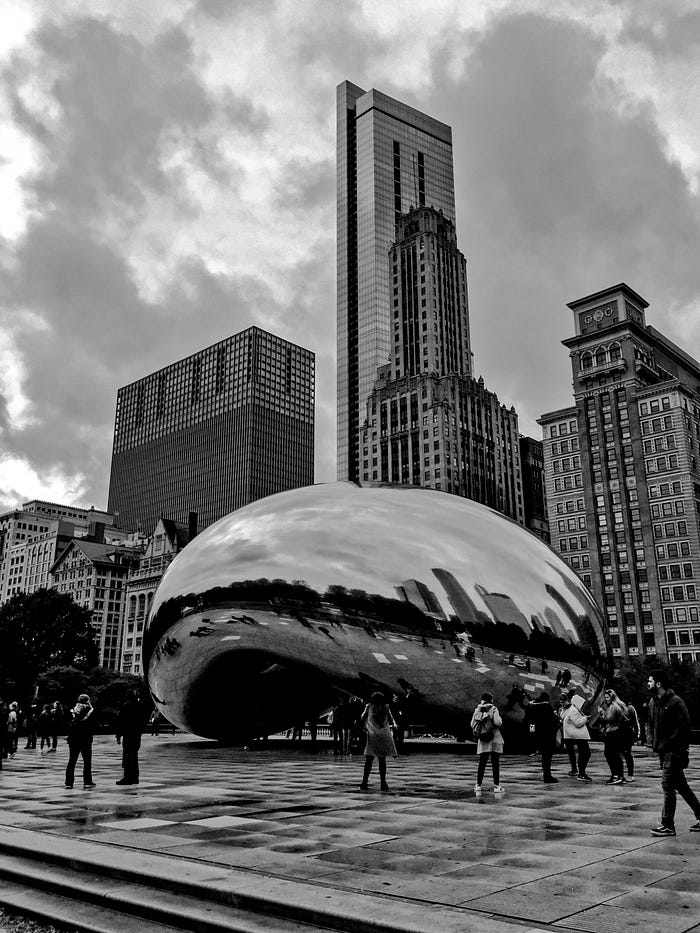After voting out Lori Lightfoot, will Chicago voters choose another progressive criminal justice reformer?

“She made history as Chicago mayor,” wrote Sara Burnett for the Associated Press on January 21, 2023. “Reelection may be harder.”
As indeed it proved: The history-making Chicago Mayor, swept into office on a wave of popularity and support in 2019, became a one-term mayor last month when she lost her reelection bid.
Two challengers garnered more votes in the primary race than Mayor Lori Lightfoot, who failed to advance to the runoff election.
“The election will be an early test this year of how crime factors into mayoral races in big-city Democratic strongholds,” predicted Burnett for the Associated Press. “Other major cities electing mayors this year, including Philadelphia, are also grappling with how to balance progressive ideals with residents’ day-to-day concerns about keeping their families safe.”
This is an election in a fish bowl; the eyes of every political analyst in the nation will be on Chicago this week. Lightfoot’s most successful challengers — Paul Vallas and Brandon Johnson — are offering two very different visions for Chicago. The two candidates differ widely on issues from education to crime.
They are also diametrically opposed. Or, rather, the two candidates are as diametrically opposed as two members of the same political party can be.
Democrat Paul Vallas is more conservative than Lori Lightfoot; Democrat Brandon Johnson is more progressive. During his career, Paul Vallas has served as CEO of the Chicago Public School system; Brandon Johnson has spent his career organizing for the Chicago Teachers Union.
“Chicago is in the midst of a high-stakes runoff election that will decide who will lead the Second City as its next mayor,” began Maximillian Alvarez for In These Times on March 23.
Alvarez sat down with candidate Brandon Johnson on March 17 to discuss the latter’s vision for the Windy City.
“In a stunning first round of voting last month, incumbent mayor Lori Lightfoot was knocked out of the race,” wrote Alvarez in introduction. “As a result, the race pits Paul Vallas, a conservative Democrat and former CEO of Chicago Public Schools, against Brandon Johnson a former rank-and-file member of and staff organizer for the Chicago Teachers Union (CTU) who currently serves on the Cook County Board of Commissioners.”
Who is Brandon Johnson and what is his vision for Chicago?
Johnson was asked to describe his proposed approach to public safety and how he intends to balance community concerns about police brutality with fears about violent crime. He was also confronted with questions about the sharply rising cost of living and the difficulty of reform in Chicago.
“You can do both,” answered Johnson on the subject of public safety and policing reform. “You can get at the root causes of crime and you can address the immediate dynamic of solving crime. And that’s what my public safety plan does, it calls for investment.”
“So the first thing that I invest in is promoting and training 200 more detectives to actually solve crime,” continued Johnson. “Right now, particularly in Black and brown communities, the clearance rate for violence that happens in our neighborhoods is below 20%. You’re not going to engender confidence in policing if you’re not solving crime.”
“We can’t keep investing in failed policies,” Johnson said of his plans to reform policing and public safety in Chicago. “That’s why I’m committed to doubling the amount of young people that we hire, not just for summer programs, but for year-round employment. The data has proven that the best way to prevent violence from happening anywhere, but particularly here in the city of Chicago, is by investing in young people.”
“We also have to make sure that we’re opening up our mental health centers to provide trauma-related support services for everyone because all of us are experiencing trauma, every one of us,” Mr. Johnson said. “But we also have to pass an ordinance called Treatment Not Trauma. Almost 40% of the 911 calls that come through are mental health crises. So we should have mental health crisis professionals responding to those calls.”
“This is not a radical idea,” Johnson pointed out. “In fact, the Los Angeles Police Department, this is literally what they’re calling for. And so, by having mental health crisis professionals, EMTs, responding to 911 calls that are not violent — that frees up law enforcement to focus on the more severe crimes.”
Johnson is hopeful for the future of Chicago, despite the setbacks of recent years.
“As a teacher and an organizer, I’ve worked within coalitions to get things done,” Johnson told Alvarez during their interview. “We have an elected representative school board coming for the first time in the history of Chicago. We did that, we built it together, and I’ll be the first mayor to actually participate in that transition. We have district council members who are duly elected officials who will have say so on how policing is done in the City of Chicago.”
“And everybody recognizes that if we’re going to be a strong, safer Chicago, that we have to make sure that we make investments in those who are struggling the most,” he said. “And that’s what people are excited about and it’s why I’m looking forward to making history as the first public school teacher ever elected as mayor of the City of Chicago.”
Will Chicagoans embrace Johnson’s rosy progressive vision for the Windy City? Or will the promise of more criminal justice reforms, amid rising crime, turn voters away?
(contributing writer, Brooke Bell)